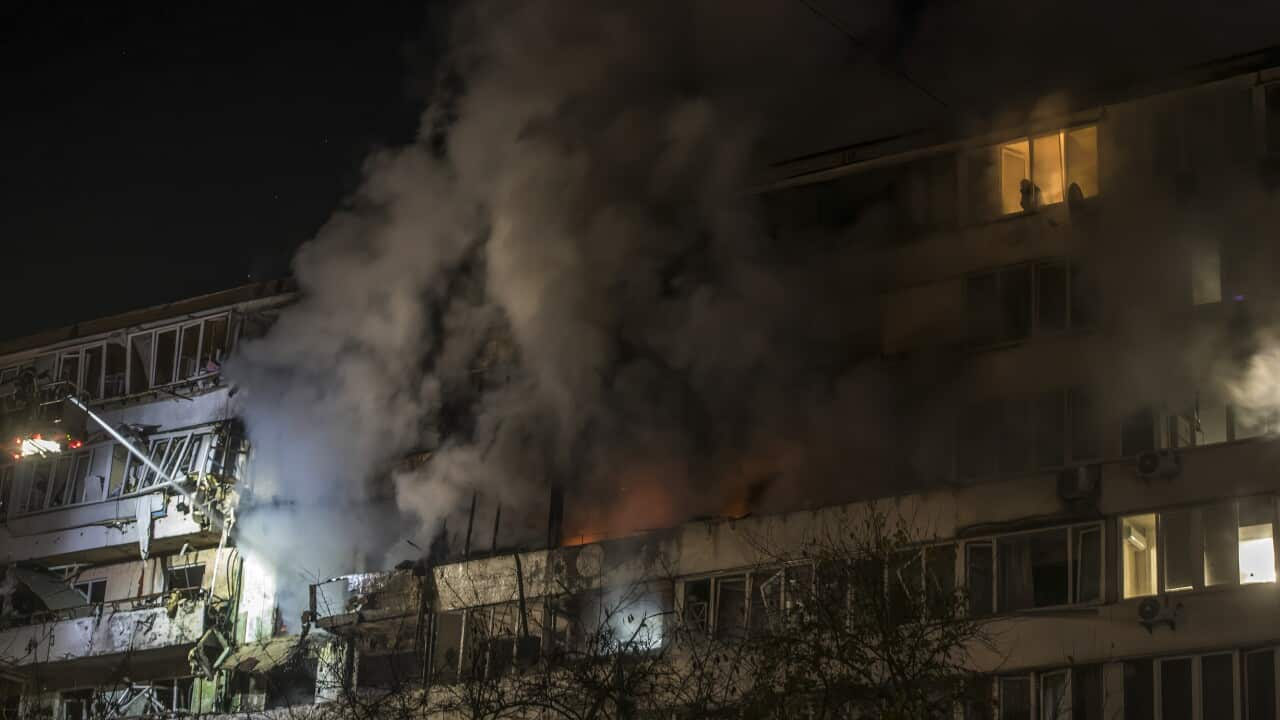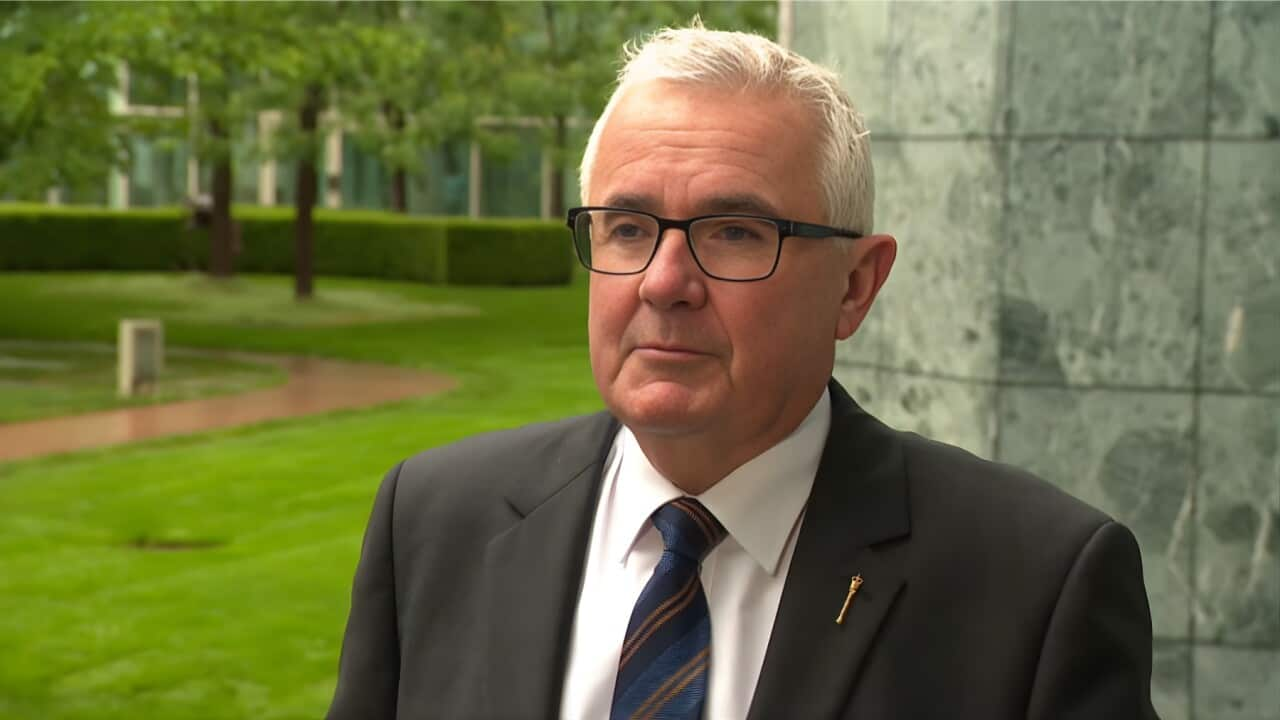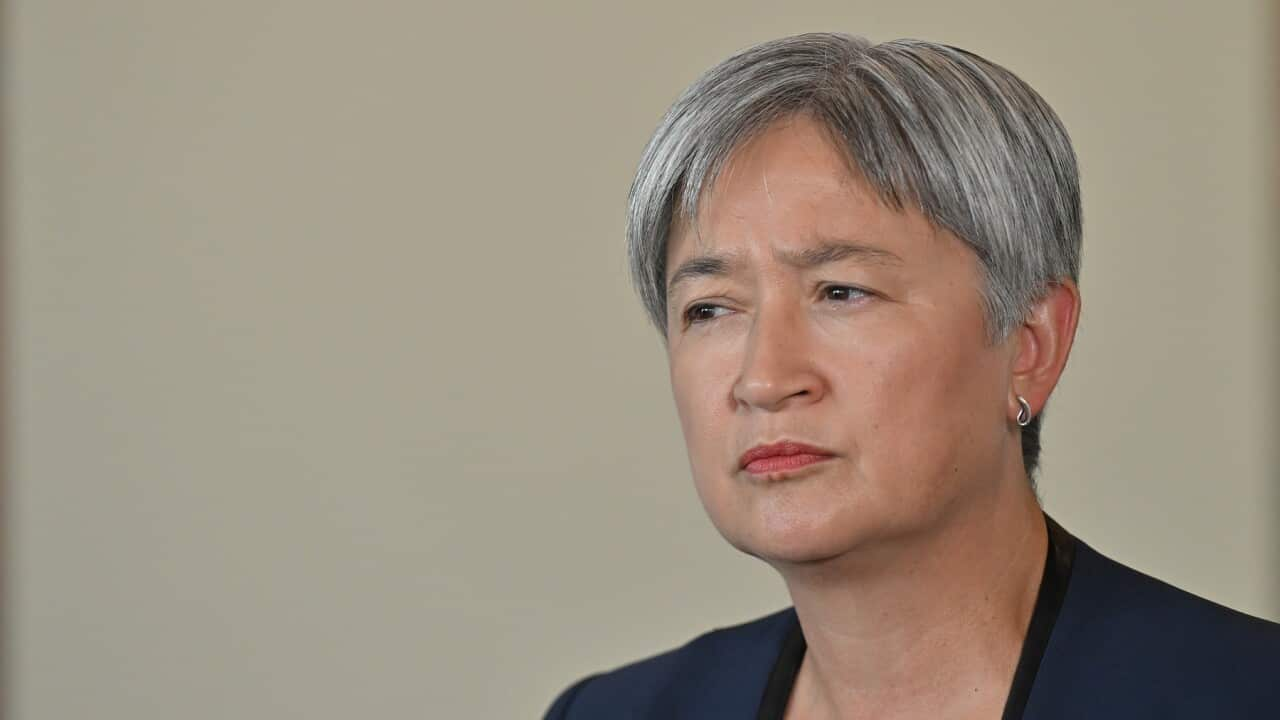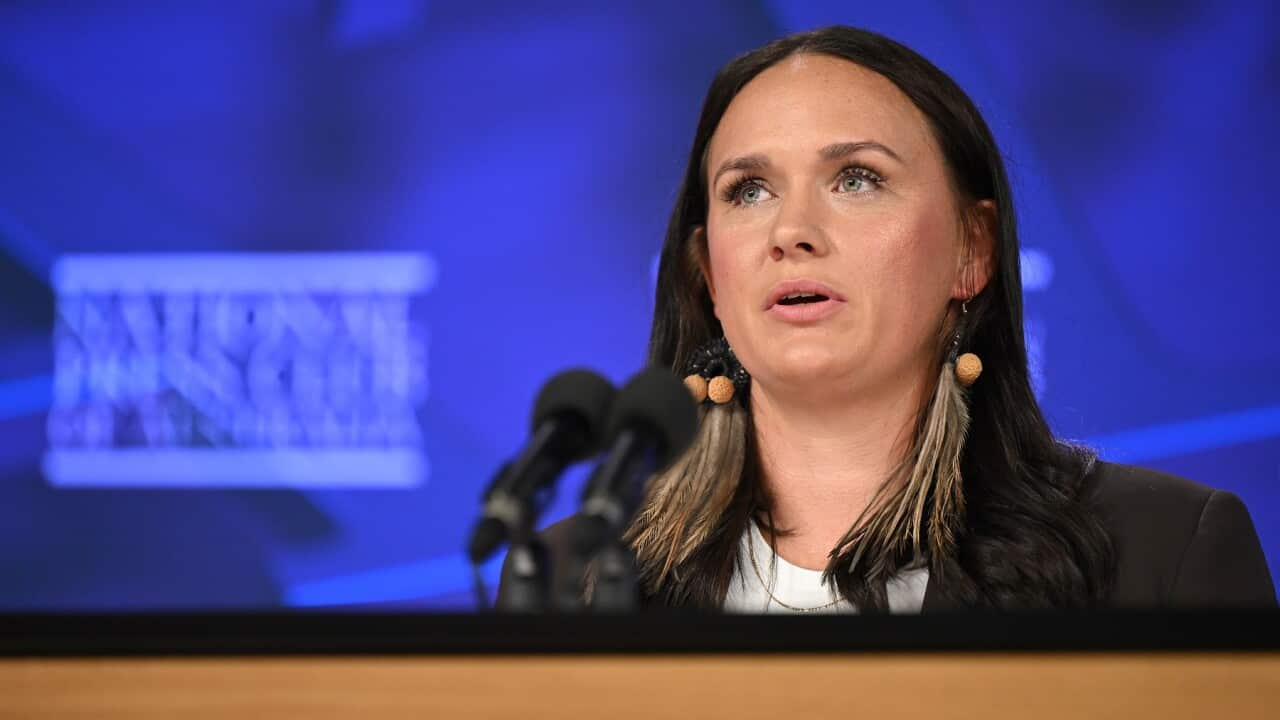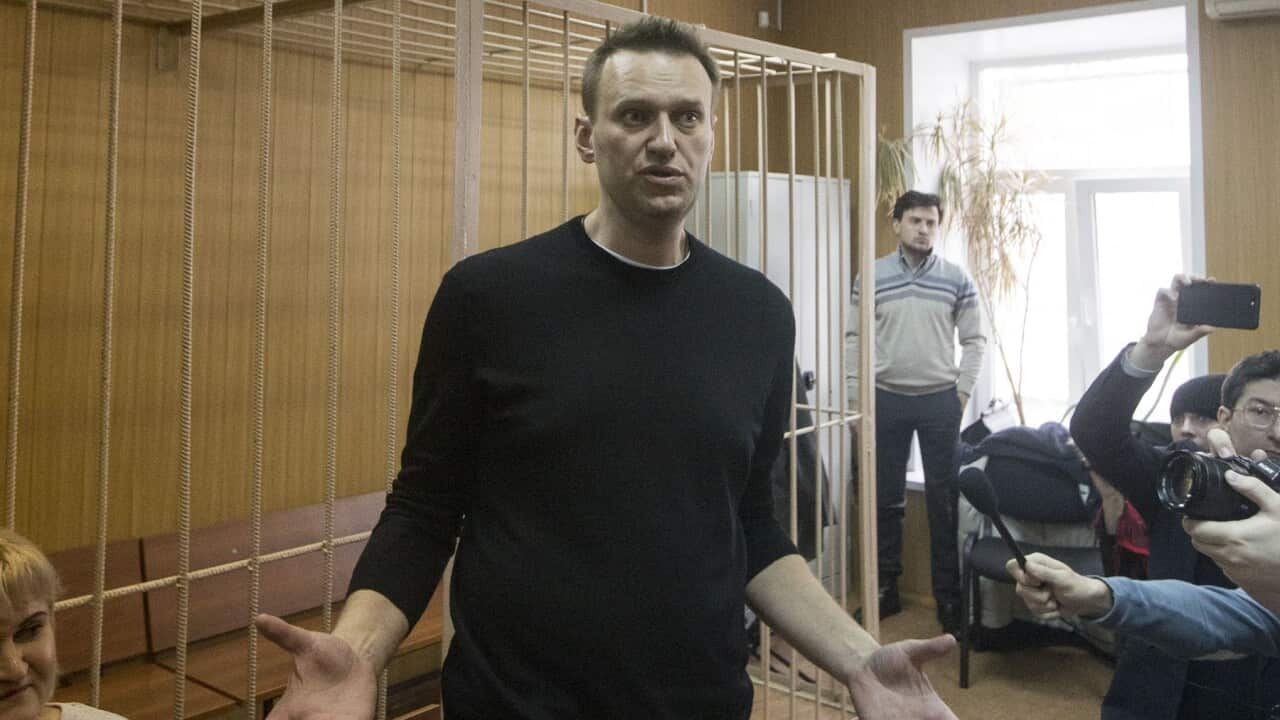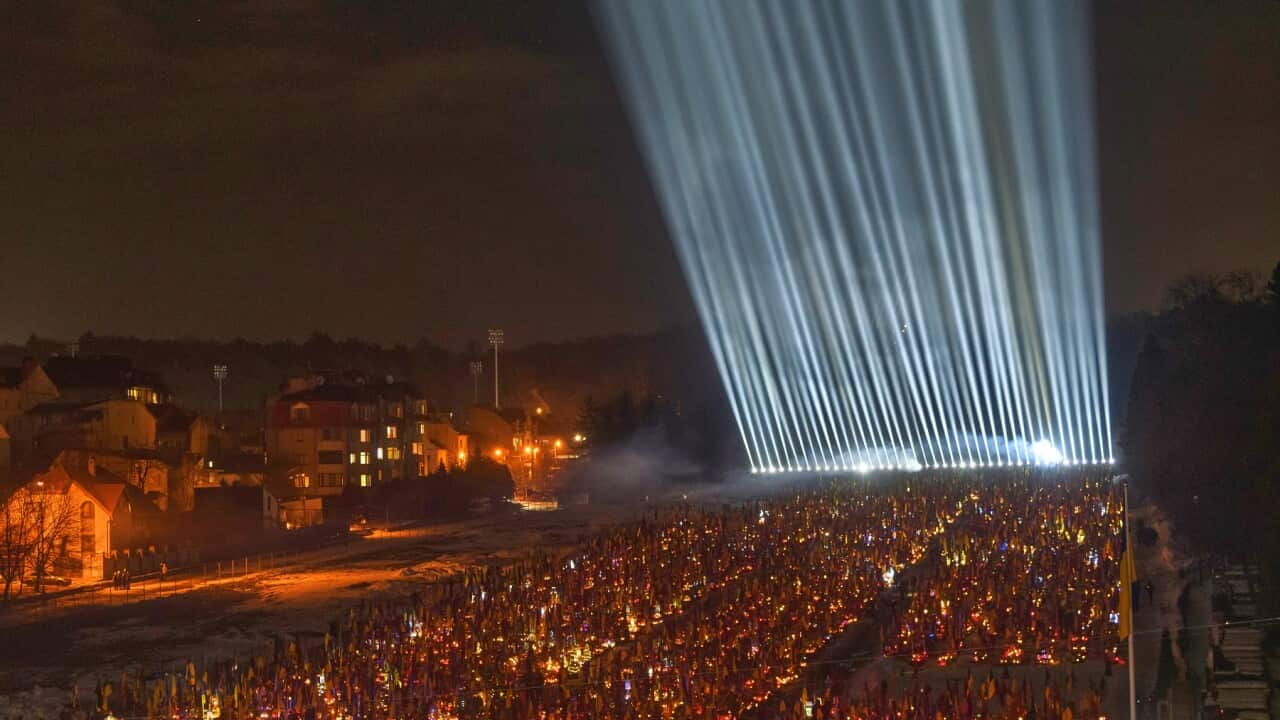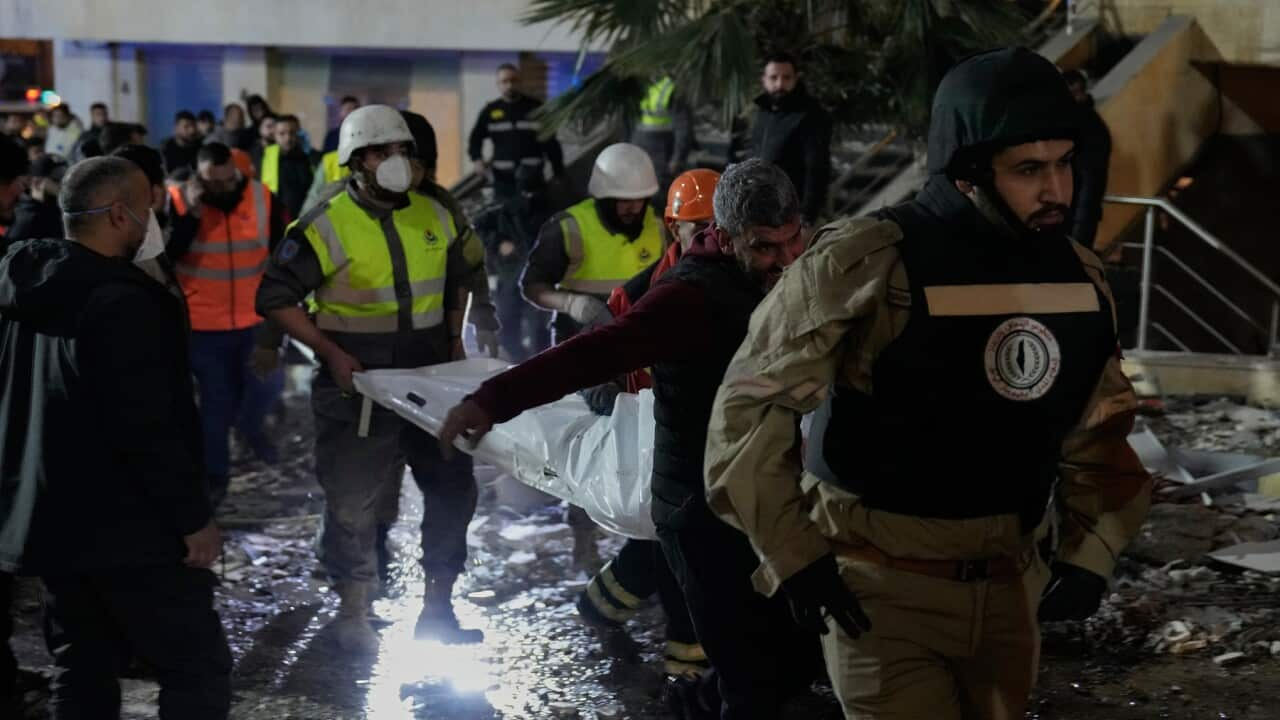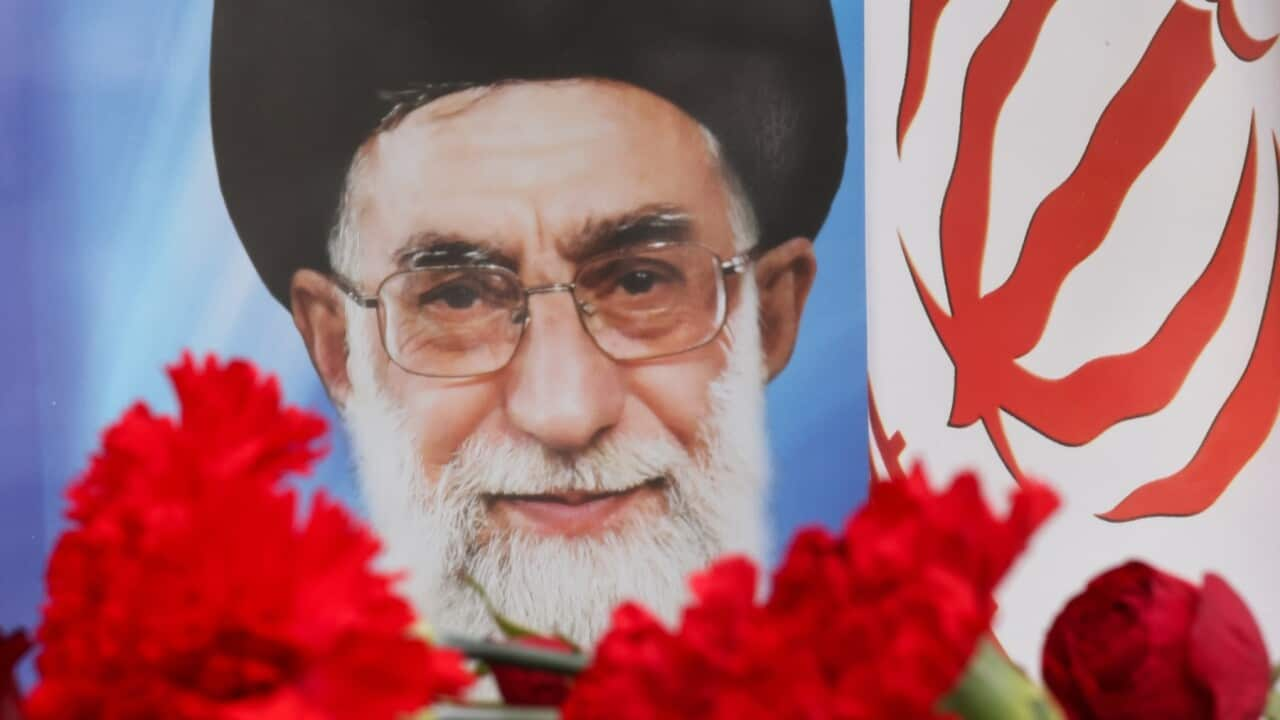Listen to Australian and world news, and follow trending topics with SBS News Podcasts.
TRANSCRIPT
The self-proclaimed peace president Donald Trump claims he's close to ending another war.
"I've also ended eight wars in nine months. And we're working on that final war. It's not easy, but I don't know. I think we're going to get there.”
Two days before Thanksgiving in the United States, its president is confident about spreading some holiday cheer to the far eastern reaches of Europe, where the war between Ukraine and Russia has dragged on for nearly four years.
It's already left more than a million people dead, and injuries have numbered in the hundreds of thousands. *
"Twenty-five thousand soldiers - Ukraine, Russia, in the last month, 25,000 soldiers have died. So I think we're getting very close to a deal. We'll find out. I thought that one would have been, gone quicker. We did eight. I thought it would have an easier one. But I think that we're making progress."
While some world watchers dispute that Mr Trump has actually resolved eight wars, the latest talks between US, Russian and Ukrainian delegations appear fruitful.
Ukrainian President Volodymyr Zelenskyy says he agrees in principle to a framework put forward by the US to end the conflict with Russia, though some clauses required further discussion.
"I am ready to meet with President Trump – there are sensitive points to discuss, we have them still, and we think that the presence of European leaders could be helpful. And let’s discuss some key issues today in a closed format."
Mr Trump revealed his 28-point plan for ending the war last week, setting off the latest flurry of diplomacy among American, European, Russian and Ukrainian officials in Switzerland.
But the plan caused alarm for heavily favouring Russia by calling on Ukraine to cede territory and barring the eastern European nation from joining NATO.
That version has now been updated, though is yet to be published, and more talks are taking place between US Army Secretary Dan Driscoll and Russian officials in Abu Dhabi.
Despite hopes of progress, Mr Zelenskyy made reference to the fact that talks were in progress without Ukrainian officials — and he called on European leaders to be involved in all negotiations.
Security decisions about Europe, he said, must include Europe.
He added that if Russia failed to demonstrate genuine steps to end the war, Ukraine would hold its front line, strengthen its air defence and keep sanctions in place against Russia.
"As long as Russia has not taken real steps toward demobilization – real steps to shut down its war machine – steps that would clearly show that Russia is serious about ending this war of aggression – we do not have the right to stop working to support Ukraine, to support our people, and to support our collective security – and we do not have the right to demobilize ourselves."
And as Russian missiles continued to rain down on Kyiv, some European leaders were also skeptical of progress.
Speaking before the Middle East talks on a video meeting of the so-called "Coalition of the Willing" of 35 countries supporting Ukraine, French President Emmanuel Macron doubted Russia's willingness for peace.
“There is clearly no Russian willingness to agree to a ceasefire, and the remarks made by the Russian Foreign Minister in recent hours, following the Geneva talks, have demonstrated this. There was no willingness to discuss the so-called amended plan that emerged from the Geneva discussions.”
While UK Prime Minister Keir Starmer reiterated calls for a what he describes as a just and lasting peace.
"Because what we all want to see, and these are the guiding principles, particularly in recent days, is a permanent end to Russia's barbarity in Ukraine and a just and lasting peace. And, as all colleagues on the Coalition of the Willing know, both of those words, 'just' and 'lasting', are hugely important."
Meanwhile in a bitterly cold Kyiv, where it was reported Russia had launched a fresh wave of attacks killing at least six people, locals seemed unwilling to compromise with their northeastern neighbour.
University professor Tetiana Yalokha was one who remained defiant.
“Ukraine must be territorially within the borders stated in our Constitution. And I think that the European society also insists on this. Possible compromises with Russia? Perhaps the number of manpower. I do not accept a compromise on the mandatory Russian language as the second official language”
While Liubov Petrivna, a resident of one of the buildings damaged in the strikes, said she felt hopeless.
"I don't believe it (peace plan), no one will ever do anything about it. (Vladimir) Putin won't stop until he finishes us off."
